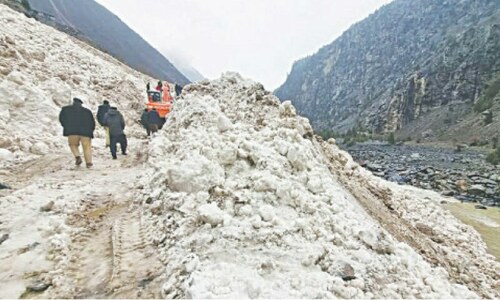ISLAMABAD: As a number of suspects facing references of the National Accountability Bureau (NAB) are seeking relief under the recently amended NAB law, the anti-graft watchdog has made it clear that the law will not be applied retrospectively.
Therefore, the accused facing pending cases may not get any benefit from amendments to the National Accountability Ordinance (NAO).
President Dr Arif Alvi promulgated the National Accountability (Second Amendment) Ordinance, 2019 that is mainly aimed at providing relief to the country’s businessmen and traders.
Moreover, an amendment to Section 9(a)(vi) of the ordinance redefined the terms “misuse of authority” by linking them with “corroborative evidence of accumulation of any monetary benefit”.
A NAB prosecutor during the hearing of a petition filed by Bilal Sheikh — a former president of the Sindh Bank who is an accused in the fake accounts case — argued in the Islamabad High Court (IHC) that the presidential ordinance was not meant for giving relief to the suspects of pending cases.
He said that NAB had circulated a letter to all prosecutors as well as its regional directorates which stated that “under-process cases authorised before the promulgation of the ordinance of 2019 will remain intact till their logical conclusion as the subject ordinance has no retrospective effect”.
Sources in the prosecution said the ordinance had specifically mentioned that pending cases related to taxation shall be transferred from NAB. He said the amendment did not say whether the law could be applied retrospectively to pending cases against bureaucrats and public office holders.
Abdul Ghani Majeed and his wife Minahil Majeed, accused in the fake bank accounts and money laundering cases, filed a petition in the IHC, seeking relief under the recently amended NAB law.
PPP leader Raja Pervez Ashraf has also challenged his indictment in the rental power projects case, saying that after the promulgation of the ordinance he could not be tried for procedural irregularities.
Former law secretary Masood Chishti and joint secretary Shumaila Mehmood, who are among the seven accused in the Nandipur power plant reference, have also sought relief under the amended ordinance.
The IHC observed that the court would examine the applicability of the amended law to pending cases.
The legal fraternity, meanwhile, expressed surprise over the stance taken by NAB on the amendments introduced through the presidential ordinance.
President of the Islamabad High Court Bar Association Raja Inam Ameen Minhas expressed his surprise and said: “How can NAB interpret a law as this is the domain of a court?”
Advocate Shah Khawar said the investigation agency could not interpret the new law. He, however, said that since the IHC had already hinted at examining the scope of the amendments, it was the judiciary that would determine whether the law would be applicable retrospectively or not.
Published in Dawn, January 17th, 2020















































